National
Human Rights Day
When the guilty remain free and victims continue to suffer, the event is just a farce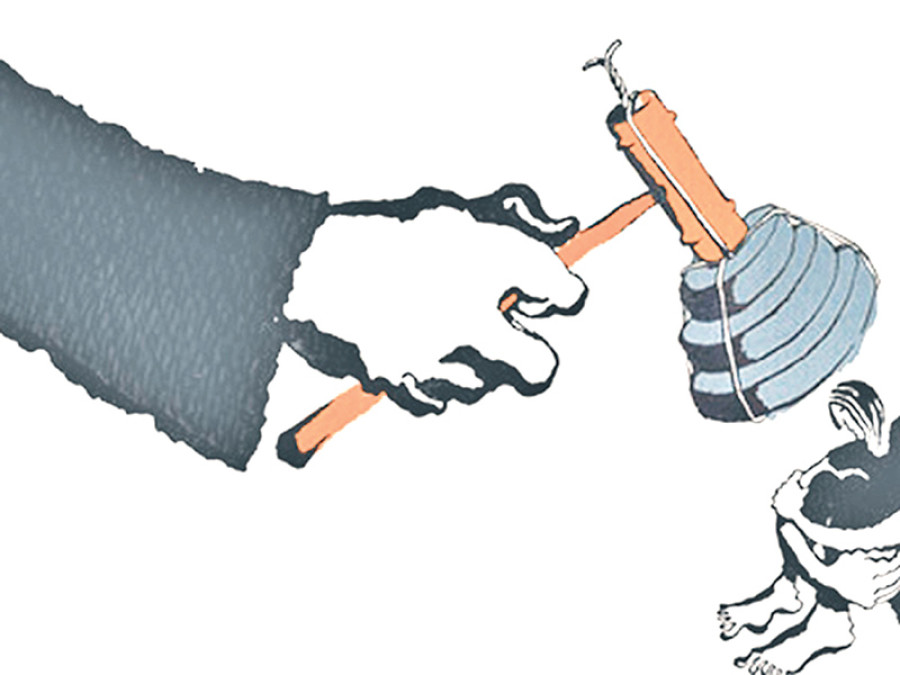
Ram Kumar Bhandari
Tomorrow, the world will celebrate Human Rights Day, marking the day in 1948 when the United Nations adopted the Universal Declaration of Human Rights. The day will be commemorated in Nepal too. However, democratisation and human rights are more buzzwords than something seen in practice. The policies that have been implemented since the end of the People’s War have done more to protect
powerful interests and hide the truth in the name of human rights than ensure those rights for the economically and politically marginalised.
Human rights NGOs have derailed the rights discourse, changed their status from activists to neo-liberal industrialists and abused resources in the name of human rights, sustaining their enterprises and destroying the human character of
resistance. There are several challenges to advancing the agenda of the People’s Movement which appeared to be dismantling traditional structures of exclusion and elite domination.
Politicians and the social domain which oppose such transformative agenda and the state do not see the spirit of the Madhes, Tharu, marginalised and grassroots
movements. Much of the human rights
community is part of the problem. Civil society in Nepal is almost as exclusionary as every other aspect of the socio-cultural
environment. The rights movement of conflict victims and young ex-combatants, Tharu struggle, Madhesi movement and campaigns for secularism, federalism,
pluralism, equality and social justice have become marginalised campaigns.
A long wait
The big players in the name of human rights and democratisation are not only privatising the local agenda but also instrumentalising it for their benefit and for boosting their role as spoilers and not as problem solvers or rights agents. Looking back over the past decade of the peace process and measuring peace from the side of the conflict victims, it can be seen that the ruling parties have failed to deliver truth, justice and human rights to those who have become victims of the conflict.
In the past two decades, Nepali society and politics have changed significantly, but there has not been a fundamental sustainable transition. For the families of the disappeared and other victims, it has been a long wait. Many continue to suffer on a daily basis. The Truth and Reconciliation Commission (TRC) and the Commission of Investigation on Enforced Disappeared Persons (CIEDP) were established in February 2015. Their two-year term ends in February 2017, but neither has produced the expected results. Both commissions have shown that they are destined to fail without political will, adequate resources, laws, coordination between government agencies, support from political and security forces and victims’ participation. These transitional justice mechanisms cannot address the issues of poverty, structural violations and economic and social justice which are the root causes of Nepal’s past conflicts.
There are strong case laws of the UN Human Rights Committee (HRC) with reference to Nepal, but the government does not seem to be serious about implementing them. Instead of vetting and investigating the alleged perpetrators, the state has rewarded former IGP Kuber Singh Rana, former Chief of Army Staff Rookmangud Katawal, Pyarjung Thapa, Toran Bahadur Singh, many senior officers such as the current IGP Durja Kumar Rai, senior army officer Raju Basnet, Niranjan Basnet, police officers Bikram Singh Thapa and Pitamber Adhikari. Dozens of senior officials still hold powerful positions against the principles of human rights.
Fundamentally flawed
When the transitional commission was performing its duty, the security forces and political leaders disturbed the official process and threatened the victims. On May 2, a meeting of the Nepal Army and the Nepal Police issued a statement saying that none of the transitional bodies can investigate their members. Former prime minister Sher Bahadur Deuba strongly protected the security forces from being probed in conflict era cases. Current Prime Minister Pushpa Kamal Dahal, who is a former rebel leader, visited army headquarters on October 2 and stated that no institution would investigate the army for past violations. The security institutions are gaining more political support, and they have made a secret deal with politicians not to blame each other and forget the past. This is a big shame for the human rights world—the government been protecting criminals and politicians have been defending them!
Celebrating Human Rights Day without providing answers to the public, undermining the rights struggle and neglecting people’s right to justice is just a global fashion. We must learn from the past, protect vulnerable groups and defend their genuine rights for a sustainable future. There is a saying that it takes a thief to catch a thief. We have been very naive in our approach to the promotion and advocacy of human rights. We have been continuously duped by the state, corporations and official agencies.
Human rights, democratisation, nationalism, inclusion, secularism, equality and justice are just myths about Nepal’s political struggle and transition. Conditions have become worse for the majority of rural poor, indigenous communities, women and Dalits despite the struggles and sacrifices. The former rulers left this country to the Brahmins, new rulers, neo-liberal agents and wealthy business houses. There is something fundamentally flawed in this struggle for human rights, social justice and equality.
Bhandari is an activist and a PhD researcher at NOVA Law School, New University of Lisbon




 18.12°C Kathmandu
18.12°C Kathmandu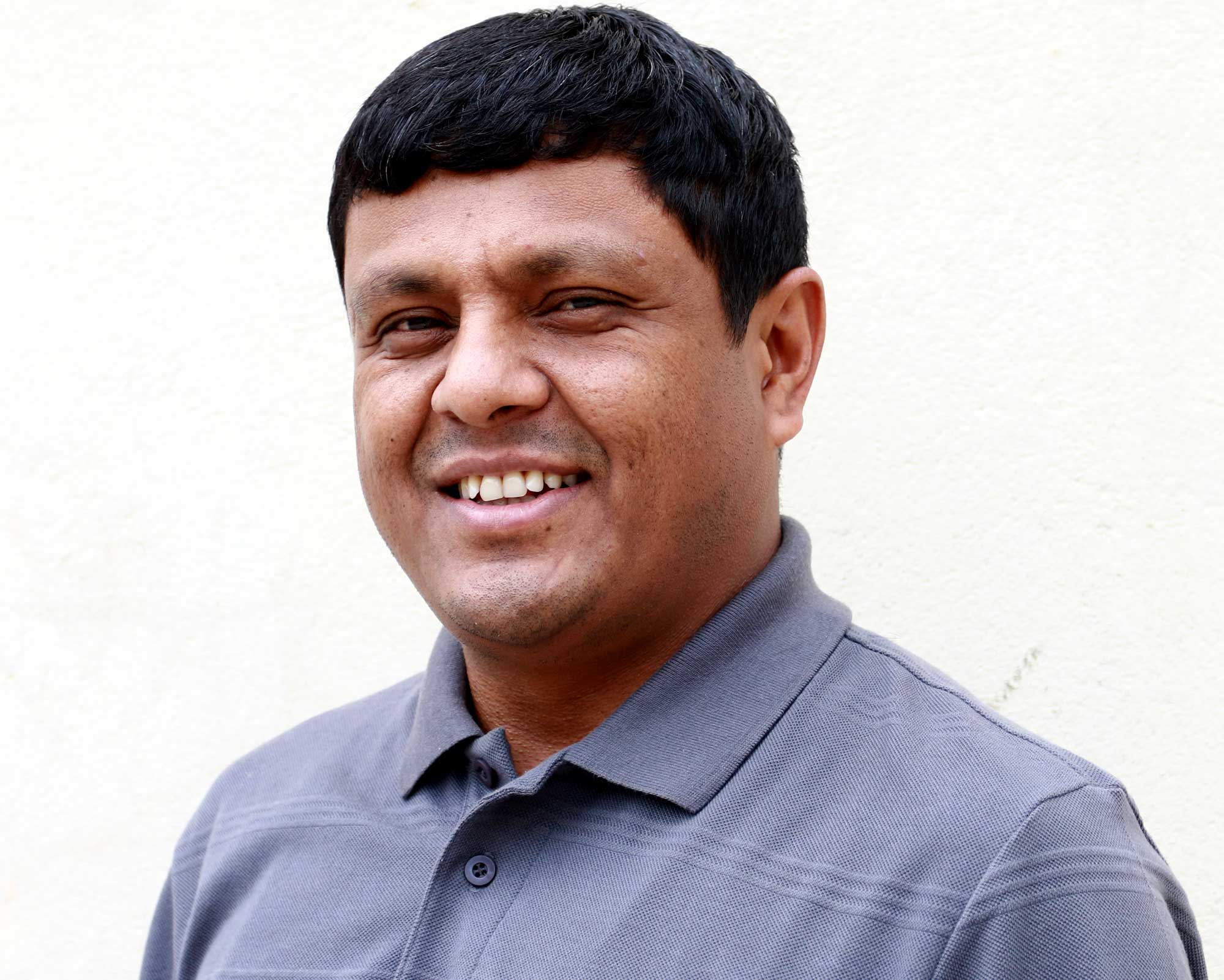

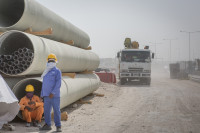
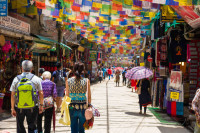

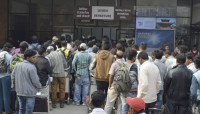
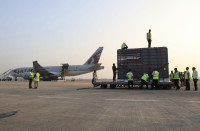


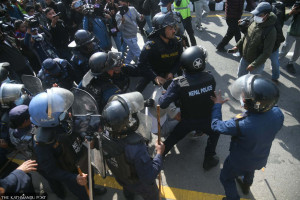
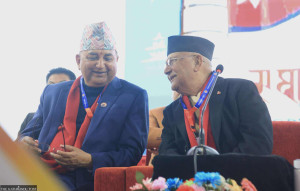



%20(1).jpg&w=300&height=200)

